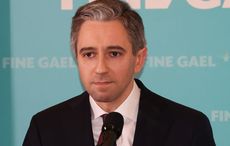Finance Minister Michael Noonan is the latest high profile figure in the public firing line after the second round of Austerity Budget announcements.
Noonan’s ears were burning after consumers were hit hard for the second time in 48 hours after Day Two of the Coalition’s first Budget.
Noonan has been accused of acting as no more than a puppet for the EU and the IMF despite claiming his Budget would help boost recovery.
Consumer groups and small businesses have reacted with dismay to that claim after Noonan’s attempts to raise another $1.5billion in taxes by targeting consumers and households but extending relief for property owners.
The Fine Gael Minister also left income tax and corporation tax untouched but again raised taxes on petrol, cigarettes and motor tax. As predicted, the standard rate of VAT will be also raised by 2 percentage points to 23%.
-------------------
Read more:
More news from Ireland on IrishCentral
Sinead O’Connor to marry husband No. 4 in Las Vegas
Irish frozen out of a new green card bill in Congress
-------------------
“Wages and salaries in January will be no less than wages and salaries in December, so people will continue to have discretion on how they spend their income,” Noonan told the Dail.
“Indirect taxes have a lower impact on economic growth and on jobs,” added Noonan who also introduced measures which will benefit mortgage holders, first time property buyers and the low-paid.
Mortgage interest relief will be extended to 30% for first-time buyers who took out a mortgage during the property boom. This relief will also be extended to 25% for first-time buyers in 2012.
“There is a psychological effect where people are saving for a rainy day,” said Minister Noonan. “We are trying to break that mentality.
“A lack of solution for the property sector is dragging the economy down. I don’t know if the property market incentives will work, but it is crazy to ignore the collapse in the sector.”
Noonan also conceded that growth is now predicted to rise by 1.3 per cent next year as opposed to the 1.6 per cent stated recently.




Comments